Thousands of people are detained in hospitals every year for not being able to afford their medical bills.
British think tank Chatham House found that the practice is “particularly prevalent” in several sub-Saharan African countries, like Nigeria, Democratic Republic of Congo, Ghana, Cameroon, Zimbabwe, and Kenya and also in India and Indonesia.
The victims are especially women who need emergency C-sections. They are detained in hospitals alongside their new-born babies until their families can pay their medical bills. Outriders have travelled to several hospitals in Zimbabwe to meet the victims of hospital detentions.
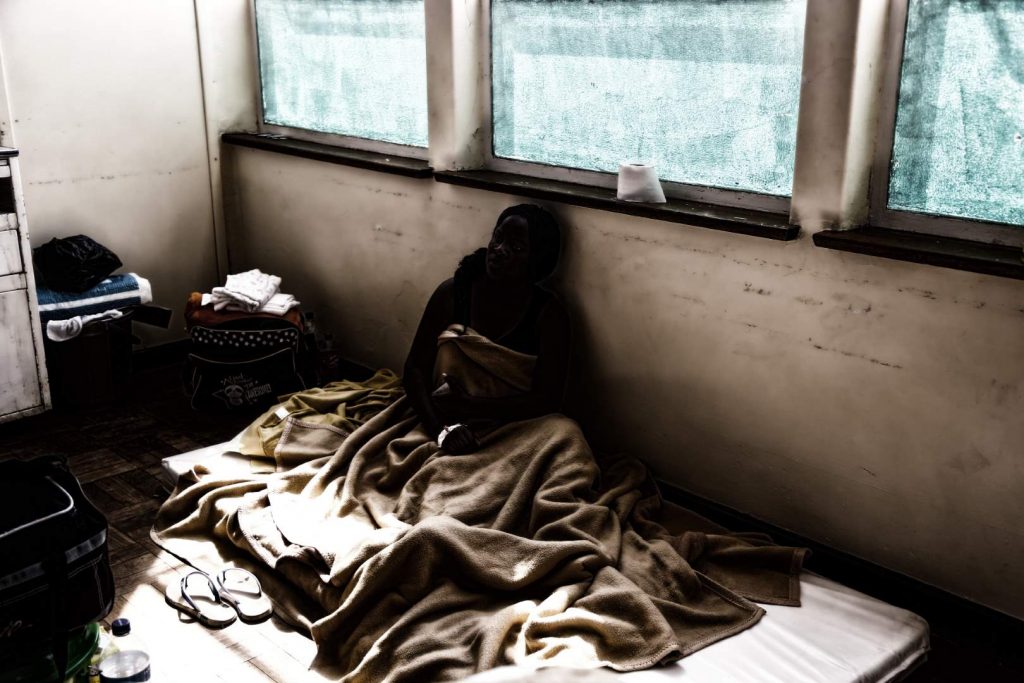
Harare, Zimbabwe-When 57-year-old Titus Sawuti* speaks about his time in hospital after he sustained burn wounds from a fire at his home, you can still hear the pain in his voice.
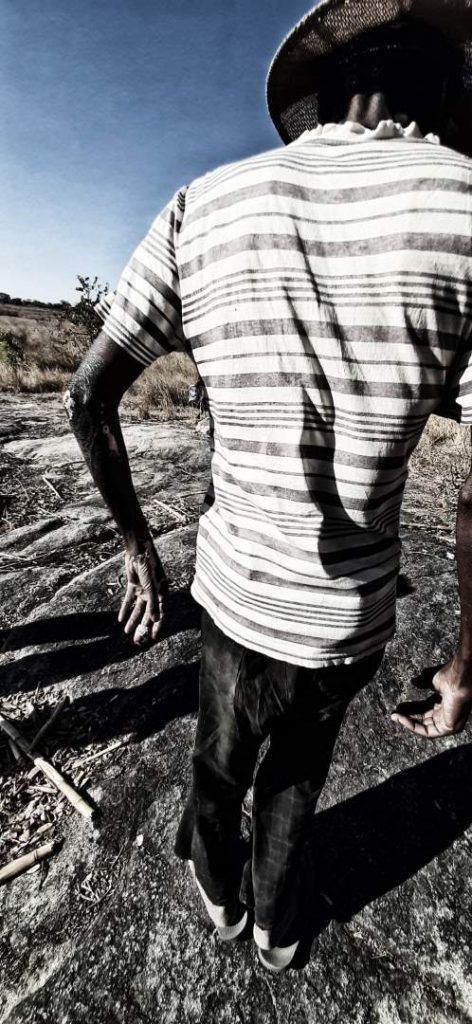
Surprisingly, this pain does not stem from the injuries that he sustained or the things he lost as a result of the fire but rather from the treatment he received at the local hospital, where he was detained for failing to pay his bill.
According to Sawuti after having to walk four kilometres to get public transport to Marondera Provincial Hospital, on the 10th of May 2019, he was told that he would not be treated until his family buys the medication and bandages needed to heal his wounds.
His family struggled to purchase all the items needed and eventually did so four days after he was admitted. It was when his treatment began.
“Everything I needed had to be bought. If I had a shortage of bandages, they would not dress my burns. If I had no money for medication I would go without medicine on that day.”
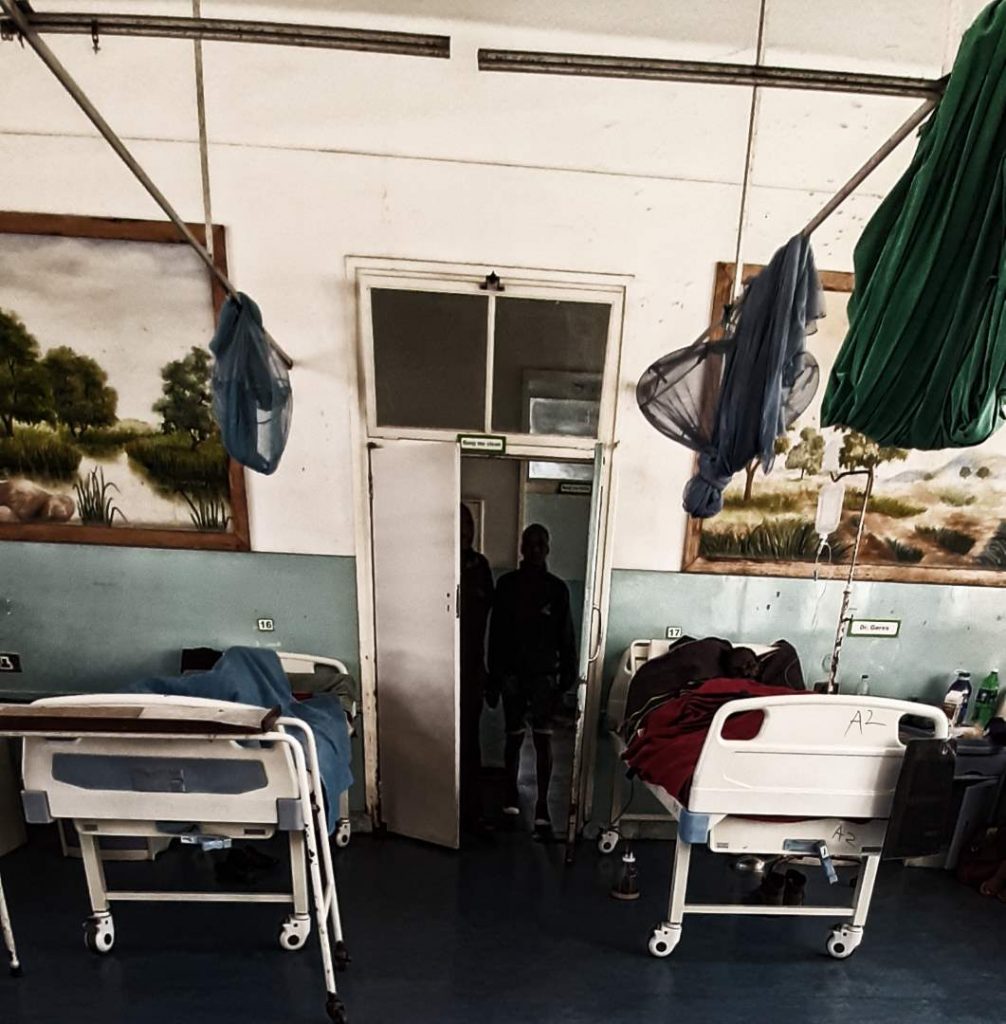
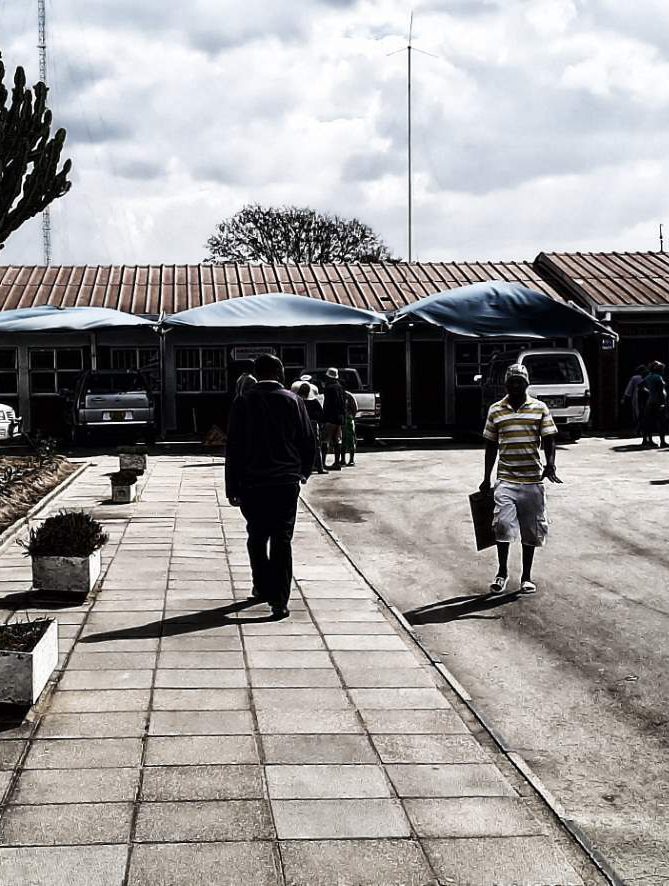
“I ended up spending two months in hospital knowing that if I did not have the medication, there would be no treatment,” he said.
After spending two months in the hospital and providing his own medication, Sawuti was eventually discharged.
At the time of discharge, he was surprised to learn that he had accumulated a bill of USD 250 and was even more surprised to learn that the hospital was going to detain him until such a time that the bill was cleared. It was at this moment that his carers became his captors.
“They change automatically from treating you with care to treating you like an enemy.”
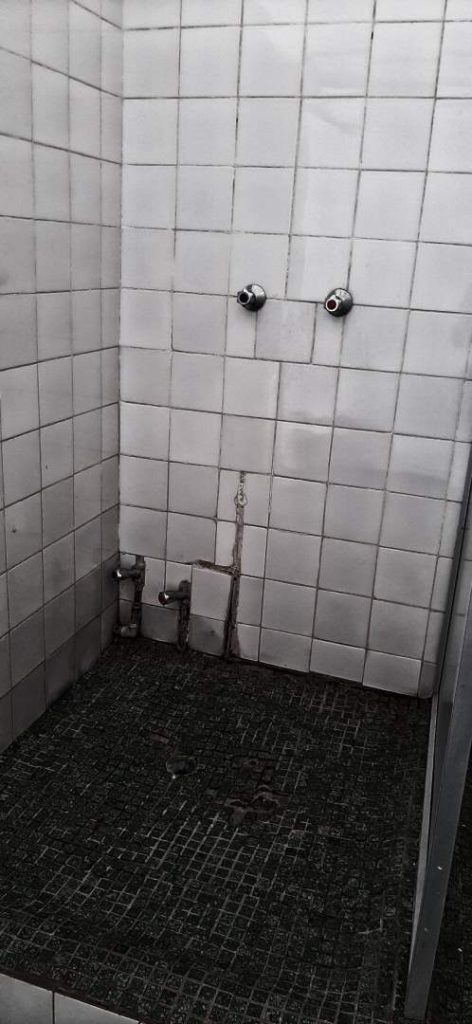
“From the time I was discharged, I had to buy my own food, they stopped serving me the hospital food, they stopped treating my burns. I stopped receiving all the hospital services. They just gave me a bed to sleep, as they wanted me near them as their prisoner,” he explained.
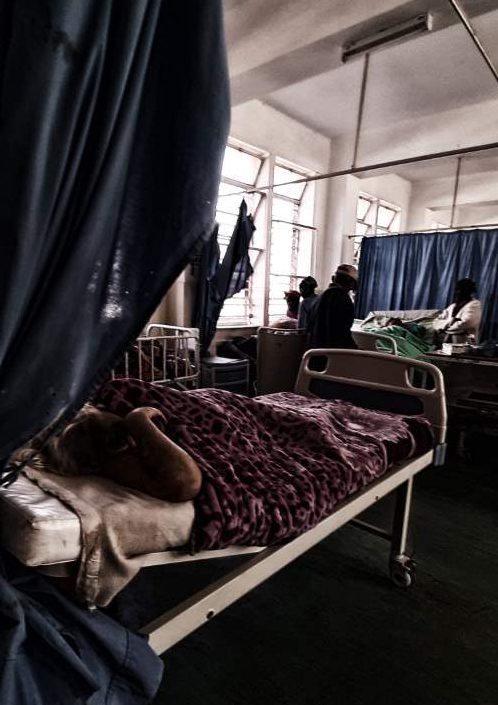
Though sad, Sawuti’s story is not unique. According to the policy institute, Chatham House, such detentions are common practice in several sub-Saharan African and Asian countries, and
“there appears to be wide societal acceptance in certain countries of the assumed right of health providers to imprison vulnerable people in this way.”
The institute estimates that “hundreds of thousands of people are likely to be affected every year,” and further noted that the “victims of medical detention tend to be the poorest members of society who have been admitted to hospital for emergency treatment, and detention can push them and their families further into poverty. They may also be subject to verbal and/or physical abuse while being detained in health facilities.”
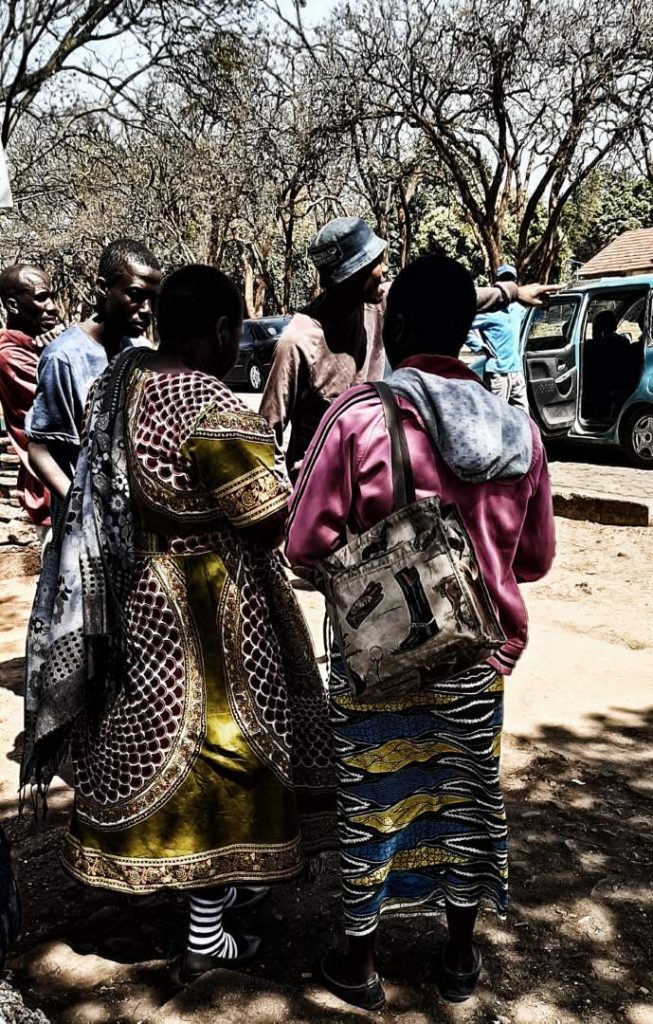
Robert Yates, Head of the Centre on Global Health Security at Chatham House, explains that they found that such detentions are happening in “health systems that are chronically underfunded.”
“This occurs in countries where there isn’t enough public funding to pay the doctors, nurses, medicine and hospitals. Where hospitals continue to charge high user fees and where government systems are not good so the hospitals can largely do as they like,” he said.
These conditions are all present in Zimbabwe.
With an estimated annual inflation rate of 290 per cent, Zimbabwe's economy continues to decline. It has resulted in serious medical shortages where simple things such as painkillers, bandages and syringes are in short supply.
Besides, Zimbabwean doctors have been on strike since the 3rd of September 2019 They are seeking a 400% salary hike that they want to be indexed to the U.S. dollar. The Zimbabwe Hospital Doctors Association (ZHDA) recently turned down the government's latest salary offers, which would see the lowest-paid worker earning 1,023 Zimbabwe dollars (roughly USD 72) a month.
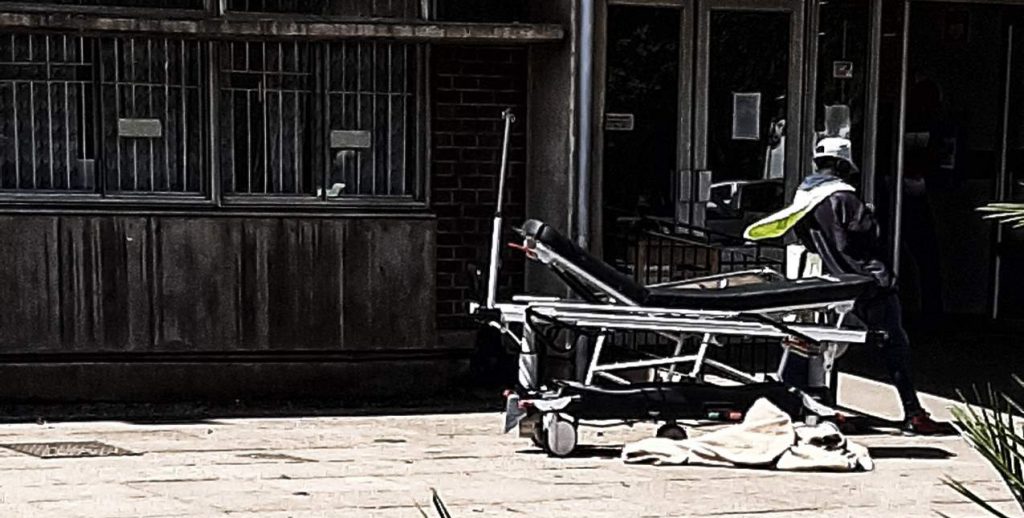
Despite these challenges within the health care system, Zimbabwe has made attempts to end medical detentions.
After a series of detentions of mothers and their babies made the headlines, the Ministry of Health and Child Care intervened by introducing a free user fee policy in December 2017.
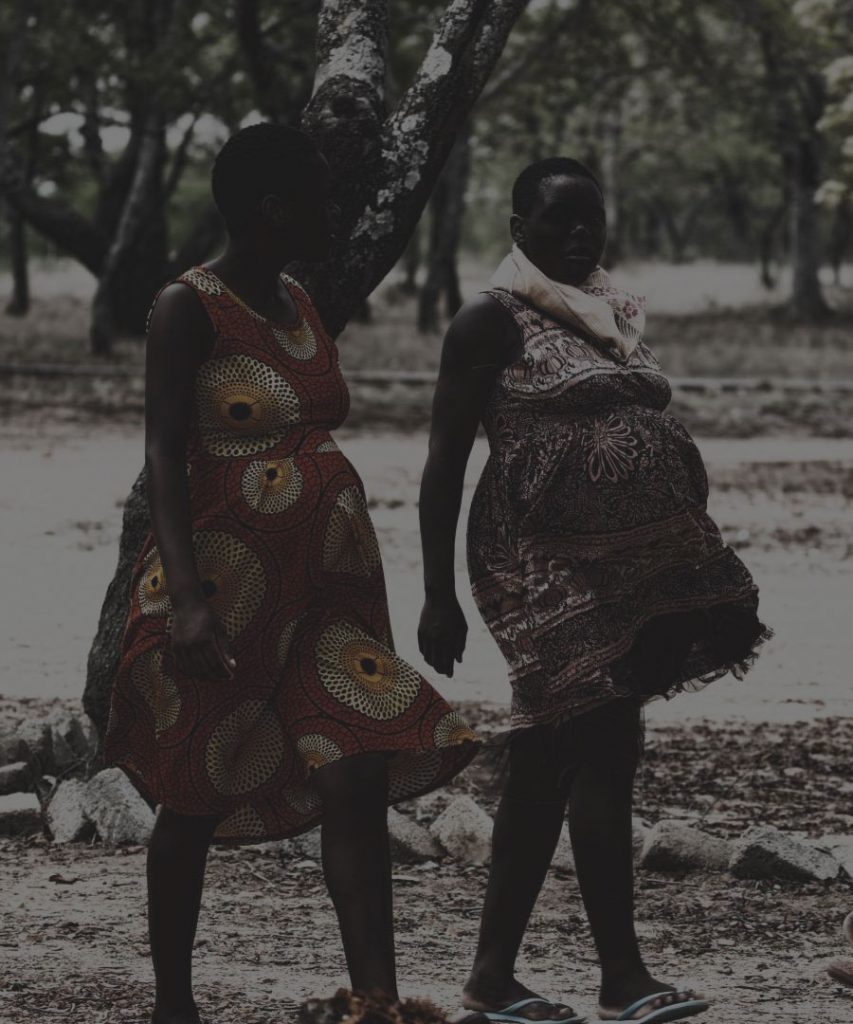
It was followed by a series of public hearings on government adherence to this user fees policy in hospitals organised by the National Assembly’s Portfolio Committee on Women and Youth Affairs, in April 2018, to ensure that hospitals were indeed complying. The free-user fee policy mandates public hospitals to exempt charging expecting mothers, children under the age of five and citizens above 65 years. However, it does not make any provisions for people like Sawuti who do not fall within these demographics but do not have the means to pay their bills.
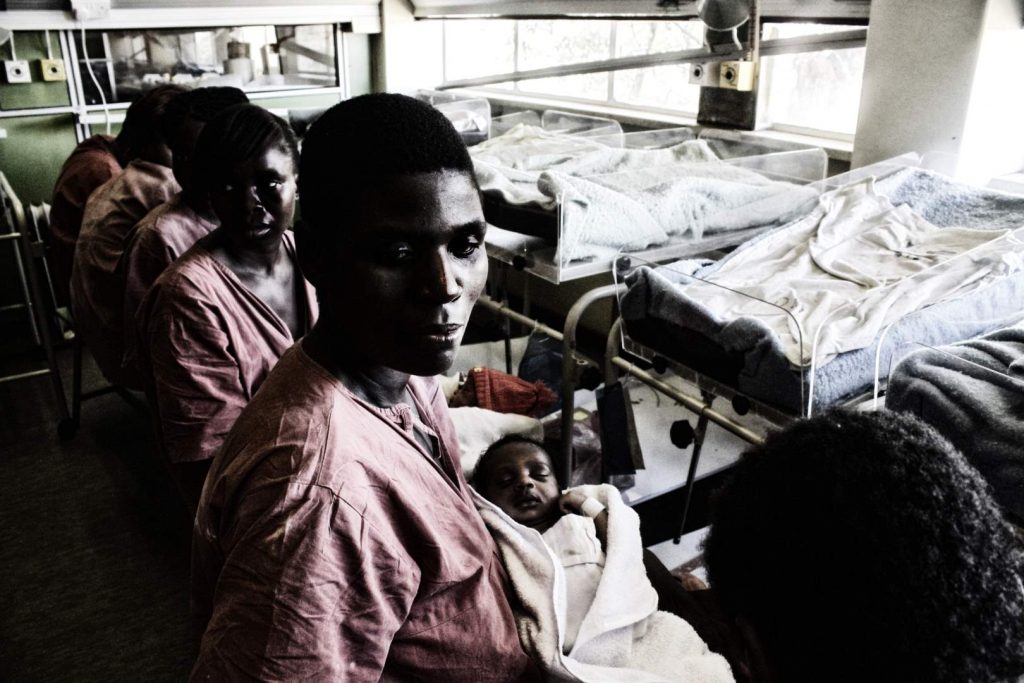
Fungisai Dube, a Trustee from Citizen Health Watch (CHW), a local organisation that monitors health care delivery in public and private hospitals, who accompanied the portfolio committee during their consultations last year says that at the time of their consultations they found women detained in hospitals and that women were only released when the portfolio committee intervened.
“There was an instance where we went to Epworth with the parliamentary committee, and we found women detained there. They were only released when the committee intervened. In Harare Hospital, we found women who had been detained for over two weeks. They were staying in what looked like a cage as the hospital had removed them from the wards to accommodate paying patients. At some other hospitals, patients would be told to sleep on the floor to make way for paying clients,” she said.
She further went on to explain that the hospitals would justify this treatment as they believed it was the only way that they could get payment.
“Hospitals would argue that “if we just detain them for three days, someone will come to pay.” So they said it was a strategy to try to push people to pay, but it was abuse, and you could see the desperation in these women.”
Despite the desperation she witnessed, Dube does not believe that the proposed solution is working and actually believes that the current free maternal health policy is instead compromising the quality of care women are receiving.
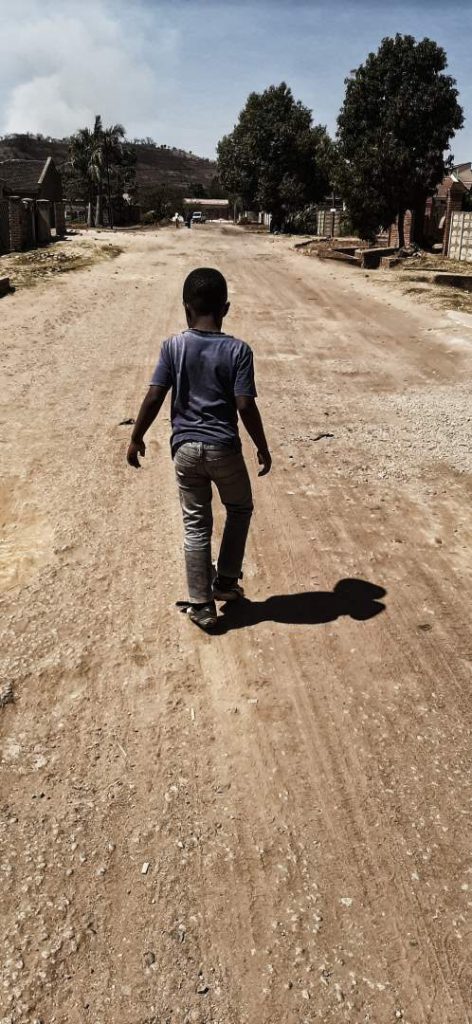
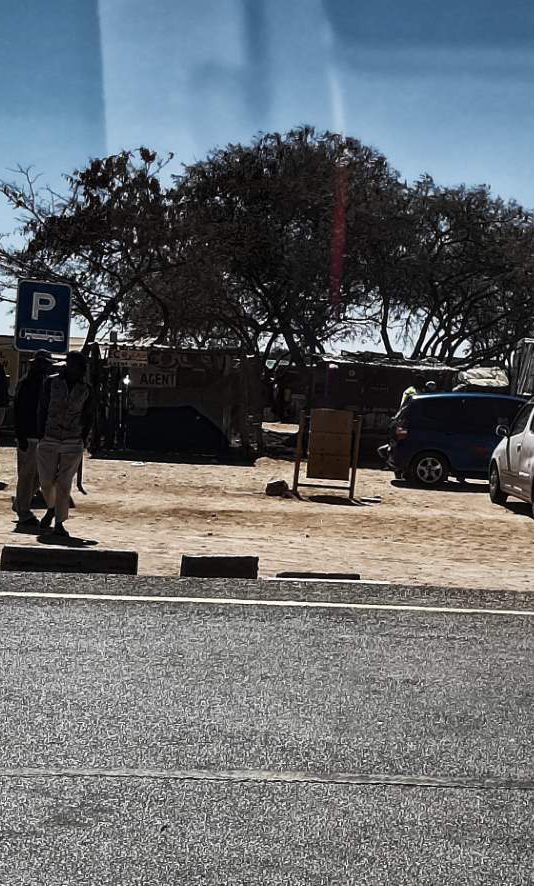
“The free is not free at all! In a health care system if you do not pay someone has to pay, and our government is not paying. It did not reimburse any maternal health fees to support the policy measures it has put in place. That is why hospitals are struggling to provide quality services for women.”
She went on to add that the cost has, in fact, been “driven back to the people.” “You will find incidences where other than the usual sundries such as cotton wool and clamps they (hospitals) are now asking women to bring two litres of diesel and catheters if they are coming in for a C-section.”
“We recently came across a patient in Karoi who told us she had been referred for an operation last week, but she could not have the procedure because they asked her to bring diesel and a catheter; things she did not have. When she spoke to the doctor and told him that “I can’t afford all these things,” his response was “when you are serious you will come, and we will attend to you.”
Community Working Group on Health (CWGH) Director, Itai Rusike, agrees. He believes that the current user fee policy is flawed as an act of parliament does not back it, and not supported by adequate resources.
“It is not backed by any statutory instruments; it is not backed by an act of parliament, it is also not supported by adequate resources hence we find a situation where now our hospitals and clinics have become sort of detention centres where you see mothers being detained soon after delivery for their failure to pay the user fees. You see some dungeons, dark corners in hospitals where mothers are kept upon delivery because of their failure to pay the user fees. It is mainly because we have not done enough to back the current policy with adequate resources.”
He further added that some local authorities have actually completely ignored the policy as it is not backed by any statutory instruments.
“Most of the clinics in Zimbabwe are not government clinics; they are local authority owned clinics. If you go into the rural areas, the majority of health facilities are not owned by the government they are owned by the rural district councils. The City of Harare owns all the clinics that you see in Harare. The Bulawayo City Council owns all the clinics in Bulawayo, and they need resources to remain functional. The majority of their clients are pregnant women and children under five, so if you take away their source of income, there is a danger or risk of the facility collapsing,” he explained.
36-year-old Florah Dube*, an unemployed mother who has not only been tragically affected by the inferior services under the free user-fee policy but was also subject to medical detention in 2018, agrees that the free services are not working.
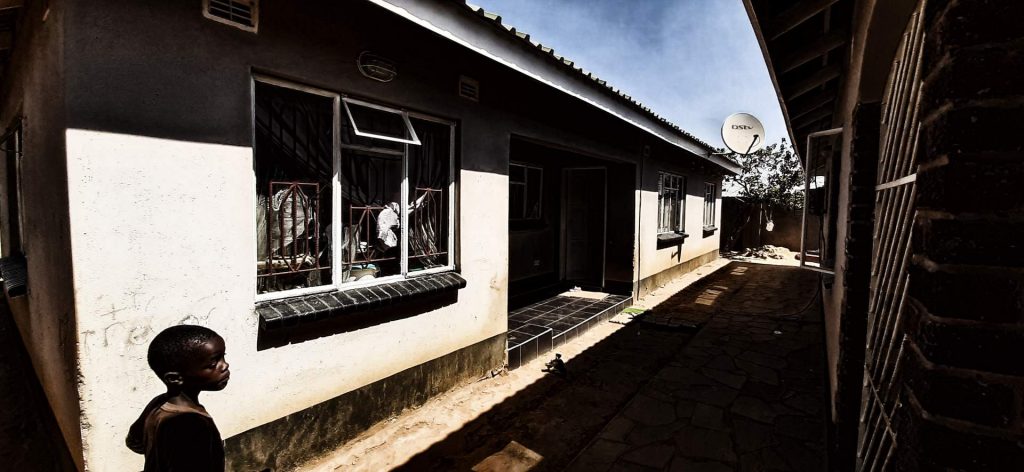
She was first admitted to Mbuya Nehanda Maternity Ward at Parirenyatwa Group of Hospitals in Harare on the 5th of September 2018 for an emergency C-section. Though she was not required to pay for the service, she says that she would rather have paid as the free service has led to inferior services and negligence. She believes it led to the loss of her baby and infection, which in turn led to a second hospital stay and her subsequent detention.
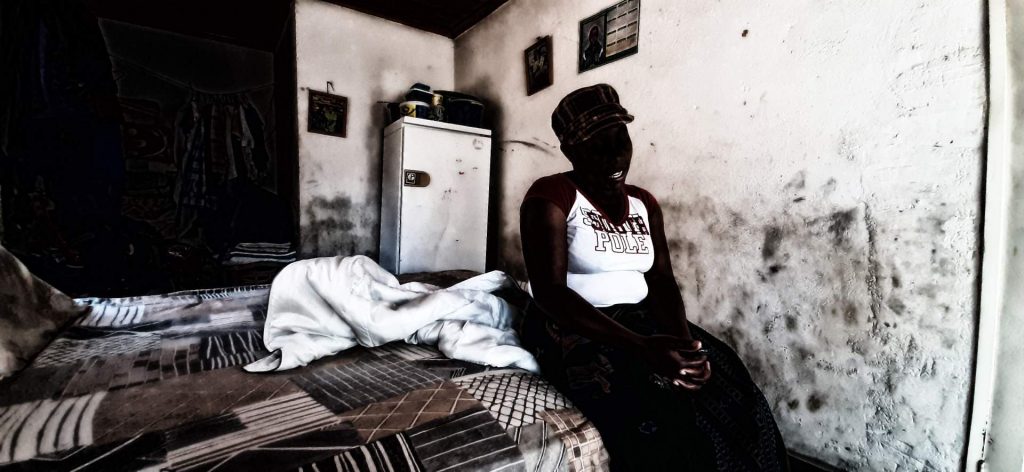
"When I was paying during my previous C-sections, the standards were very good…Within the wards, we were treated well, and we always got our medication. They would not skip doses. When we were paying the gynaecologists would do their daily rounds at the wards, but now that it is free we would hardly see the gynaecologists we see the junior doctors,” she said.
Unfortunately, this was not the end of her nightmare as two weeks after her discharge she once again found herself at the same hospital seeking treatment for an infection that she believes is a result of nurses skipping her medication dosages.
Upon her discharge, at the maternity ward, she had been told that she could use her card to access health services free of charge within the first six weeks. However, this was not to be the case as she (like Sawuti) was required to buy her medication and was also issued with a bill of USD 200 at the end of her hospital stay.
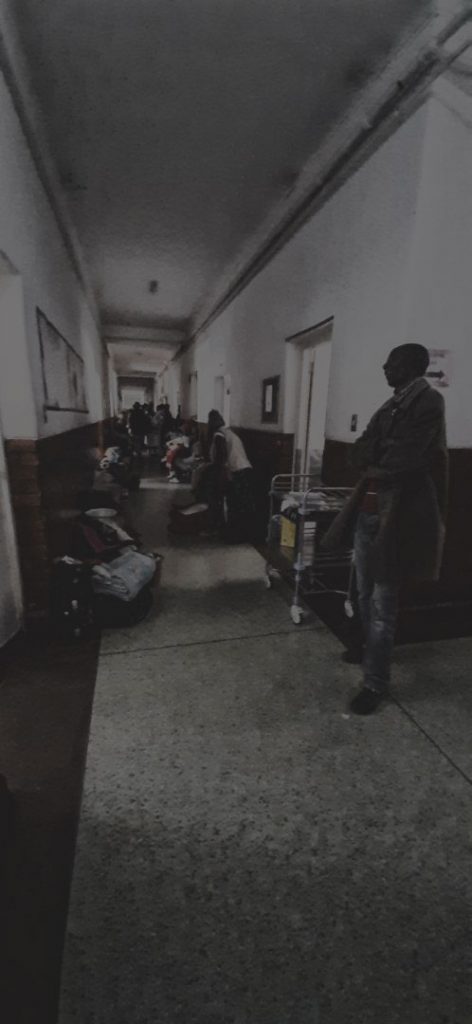
When she indicated that she was unable to pay the bill, she was told that there would be no negotiating, she would have to stay in the hospital until her bill was paid. The hospital was forced to release her when her brother contacted CHW, who negotiated her release, two days later.
In addition to these detentions, hospitals have also resorted to withholding birth records of women who manage to escape detention as another strategy in ensuring that their hospital bills are paid.
Human Rights lawyer, Nosimilo Chanaiwa from Zimbabwe Lawyers for Human Rights (ZLHR), explained that they “have also come across instances of people being detained at the hospital until their debt is paid, or in the case of mothers who deliver babies, we have seen the birth records of the babies being withheld until the debt is settled.”
She further went on to warn that both the practices of detention and withholding birth records are illegal and a violation of the rights enshrined within the Constitution of Zimbabwe.
“There is no law that sanctions the detention of patients to secure payment of bills. The conduct is not only unlawful, but it is also unconstitutional as it violates the right to personal liberty as enshrined in section 49 of the Constitution which provides that a person cannot be detained without a trial and cannot be deprived of their liberty arbitrarily.”
“There is no legal basis to withhold birth records. It contributes to the violation of the right of the child as a child cannot access a birth certificate without a birth record. A birth certificate is an important document which confers citizenship and other rights. Without it, one becomes stateless and is unable to enjoy basic rights such as education, access to other national documents such as a passport, national identity, etc.,” she explained.
Janice Kandoro*, a 33-year-old hospital detention victim, knows only too well the challenges that one can encounter without a birth record for your child.
She was charged USD 300 for an emergency C-section at Mpilo Central Hospital in Bulawayo in January 2016. At the time, the hospital refused to release her until she came up with a down payment of USD100.
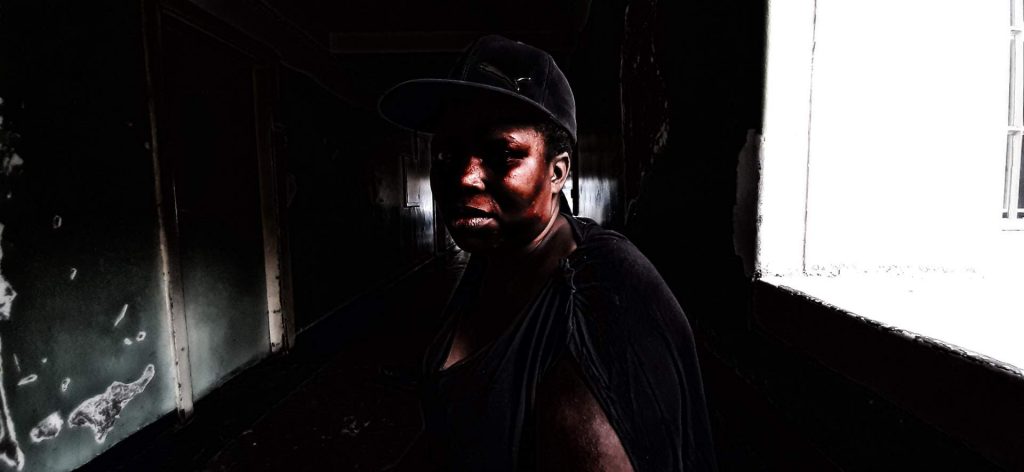
Through the assistance of her parents, who borrowed her money, as she was unemployed, she and her child were released a day after their discharge. The hospital however then went on to withhold her child’s birth records for more than three years till ZLHR intervened on her behalf in July 2019.
Without her child's birth record, she was unable to obtain access to essential services such as daycare and preschool services. “If your child doesn’t have a birth certificate, it just can’t go to school, and it just does not give you peace of mind as a parent,” she said.
38-year-old Hope Lange*, a 2009 hospital detention and negligence victim who now uses her experience to help educate other women through Citizen Health Watch believes that hospitals have been able to get away with this illegal activity for so long because citizens are simply not aware of their rights.
She explains that at the time of her detention, she was not aware of her rights and as such could not take any action.
“I did not know; I did not know my rights. Had I known my rights, I would have been able to act...I advise all women going to the hospital to know their rights because nurses take advantage of the fact that we do not know our rights, and cannot do anything to them,” she said.
Dube agrees as she says she has noticed that nurses take advantage of women who are already disadvantaged.
“The system works for a certain class of women and that class of women you will not find in detention. These are women who are able to question and demand their rights, and you won’t find them detained. The nurses assess their patients; they have access to demographic information and can determine that if we detain this one, there is nothing they can do.”
But is there a solution?
Dube believes that the health care system is affected by a whole myriad of challenges which makes coming up with a solution very difficult.
“I have gotten to a stage where I do not know what can be done to save the situation,” she says.
She does, however, believe that a living wage for health care service providers should be part of the solution.
“Right now, there is a policy where nurses have to work three times a week only because the government cannot afford to pay salaries. So we are perennially understaffed. It affects the quality of healthcare, leading to loss of tempers, leading to seriously abusive attitudes, negligence, and mistakes."
“Making sure health care providers are well paid is critical because we do not find doctors in hospitals when we go there. In the past administrators used to try to cover up for them, but now they say, that doctors do not come, even if they call them, they do not show up. So when people complain about waiting times, there is nothing they can do because they are waiting for a doctor who won’t come to work.”
Rusike, on the other hand, believes that the solution lies in finding innovative funding mechanisms.
“The government has to come up with other innovative domestic health financing strategies because we cannot sustain this free user fee policy from the national budget alone.”
Yates adds that this can only be achieved with political will. “It should be possible in Zimbabwe because if you look at Malawi, which is in a similarly difficult economic situation with a similar GDP per capita, they have universal free healthcare. People don’t pay anything, so the problem does not happen in Malawi.”
“So it is perfectly feasible in Zimbabwe. What the government needs to do is increase public health spending and make sure doctors are paid. One knows that the country is going through a hard time right now but to cut the health budget is a political choice.”

Sawuti believes that the solution simply lies in a more humane approach in health care.
“I think we need to train our nurses, to continue to care for patients even if they are unable to pay. As it is they change their attitudes automatically as if they are connected to the hospital computer system and start to treat you like an enemy,” he said.
*The names of some people have been changed to protect their identities.